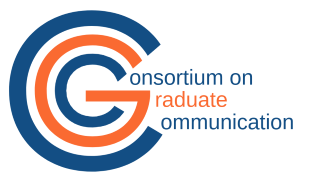Call for Proposals
Writing Together: Building Social Writing Opportunities for Graduate Students, edited by Rachael Cayley, Fiona Coll, and Daniel Aureliano Newman
We seek proposals for contributions to an edited collection titled Writing Together: Building Social Writing Opportunities for Graduate Students. This book will be the first in a new series from the Consortium on Graduate Communication and the University of Michigan Press titled Practice, Pedagogy, and Programming for Graduate Communication.
- Proposals due: February 1, 2023
- Selection by editors: March 1, 2023
- Full chapters due: July 1, 2023
- Chapter length: 2,000 – 2,500 words
In recent years, graduate writing programs have increasingly paid attention to the benefits of writing initiatives that harness the power of peer presence, interaction, and collectivity. These social-by-design writing initiatives—which could be boot camps, writing groups, write-alongs, retreats, peer review sessions, or shut-up-and-write gatherings—rely on two central contentions: that graduate writers need support with the practical challenges of writing productivity and that writing alongside others can be a transformative experience for graduate writers. Social writing opportunities offer uniquely dynamic environments in which graduate students can develop their writing processes.
The purpose of this volume is to collect accounts from graduate writing professionals about how social writing programs are imagined and delivered. Our goal is to survey the motivations, rationales, and structures that underpin these initiatives in order to create a practical resource for writing professionals who set out to establish or refine their own graduate offerings. Writing Together is less interested in presenting “how to” approaches and more interested in presenting “how we” accounts that will allow readers to learn from the creative programming of others. To capture a range of experiences, institutional models, and forms of social writing support, we aim to collect a fairly large number of short chapters (2,000 – 2,500 words), each one a case study that explains the thinking behind a social writing initiative and describes how the success of that initiative has been assessed.
We are interested in proposals for essays on any form of graduate writing support that makes sociality a crucial component of its format and pedagogy, including formats that may differ substantially from well-known models like writing bootcamps or retreats. We are especially interested in accounts from North American contexts.
The full Call for Proposals can be found here.


Comments are closed.